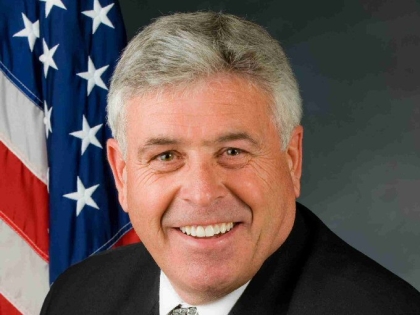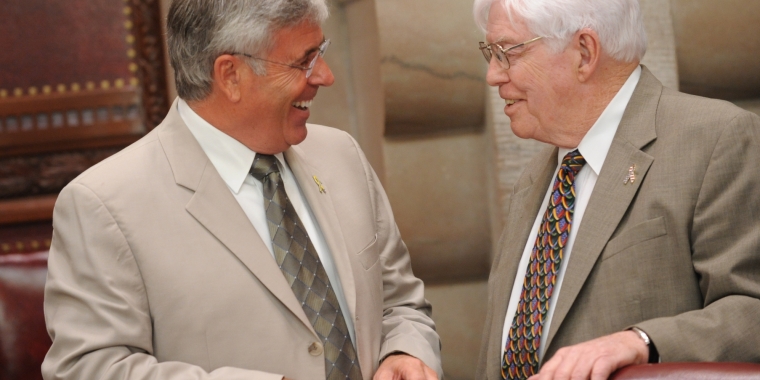
Aubertine, Senate Majority Push for Budget Reform
Darrel J. Aubertine
April 7, 2010
-
ISSUE:
- Finance
- Government Operations
- Budget
Sen. Aubertine: Legislature must seize opportunity to make long overdue fundamental reforms
ALBANY (April 7, 2010)—State Sen. Darrel J. Aubertine today joined his colleagues in pushing for significant budget reforms that would address several of the root causes of New York State’s current fiscal trouble.
“As we continue working to close our budget gaps and restore our state’s economy, now is the time to seize the opportunity to make long overdue fundamental reforms to the budget process,” said Sen. Darrel J. Aubertine. “This package of proposals, which includes performance-based budgeting and common sense ‘pay as you go’ accounting, will address many of the decades old systemic problems that have only made this economic downturn worse. I look forward to working with my colleagues to pass legislation that includes these changes and moves us beyond this year's spending plan."
The 7-point legislative package addresses the structural deficiencies in the budget process. For decades, Albany ignored the inherent problems in the budget process and the need for wholesale changes, relying on short term fixes and simple bandages without treating the root causes. This package of reforms builds on a series of reforms pushed by Sen. Aubertine to help New York State government emerge from decades of dysfunction.
The Legislative plan unveiled today will:
- Establish a two-year budget and require the Executive to submit two-year financial plans in order to ensure proper long-term fiscal planning (S7160).
- Remove fiscal manipulations by requiring both the Executive Budget proposal and Enacted Budget to be balanced according to Generally Accepted Accounting Principles, which will “fundamentally realign recurring spending with recurring revenue to restore the State's fiscal health” as recommended in a recent report by the state Comptroller (S7284).
- Task a 15-member Empire State Performance Commission with designing a performance based management and budgeting blueprint to streamline government and end waste and fraud within programs and services (S7259).
- Create a non-partisan Legislative Budget Office modeled after the U.S. Congressional Budget Office, which will remove the politics from revenue forecasting while simultaneously ensuring funds are not being used to create hidden slush funds by being stuffed away in “off-budget” public authorities. (S4526).
- End New York’s status as the only state with a budget date prior to the federal tax collection date, and shift the start of the fiscal year to June 1 to allow for proper fiscal planning (S5221C). The Senate Select Committee on Budget and Tax Reform has issued a new report, A New Fiscal Year — A Better Budget, highlighting how many of the state’s budget woes stem from the 1943 decision to move the start of the State’s fiscal year to April 1. The full report can be found online at: www.nysenate.gov/report/select-committee-releases-report-changing-new-yorks-fiscal-year
- Require the Executive, in their Annual Tax Expenditure Report, to list a cost-benefit analysis of all New York’s 380-plus tax break programs, to allow for the strengthening of programs which work, and ending of programs which waste revenue (S7347).
The Senate is also developing legislation to require a regular review of the state’s tax breaks systems by enacting automatic sunsets phased in over five years (excluding programs with pre-existing sunsets), so that good programs can be expanded and ones that do not work can be eliminated.
“It’s important we continue pushing the envelope for change in New York and learn from these trying times so that we emerge stronger as a state and better prepared for the future,” said Sen. Aubertine, who sits on the Senate’s bipartisan Task Force for Government Efficiency, which aims to find and root out government waste. “For too long we’ve seen the symptoms addressed and the underlying problems ignored. This is our opportunity to take a stand against decades of mismanagement and continue pushing forward with a new era of reform.”
-30-
Share this Article or Press Release
Newsroom
Go to Newsroom

